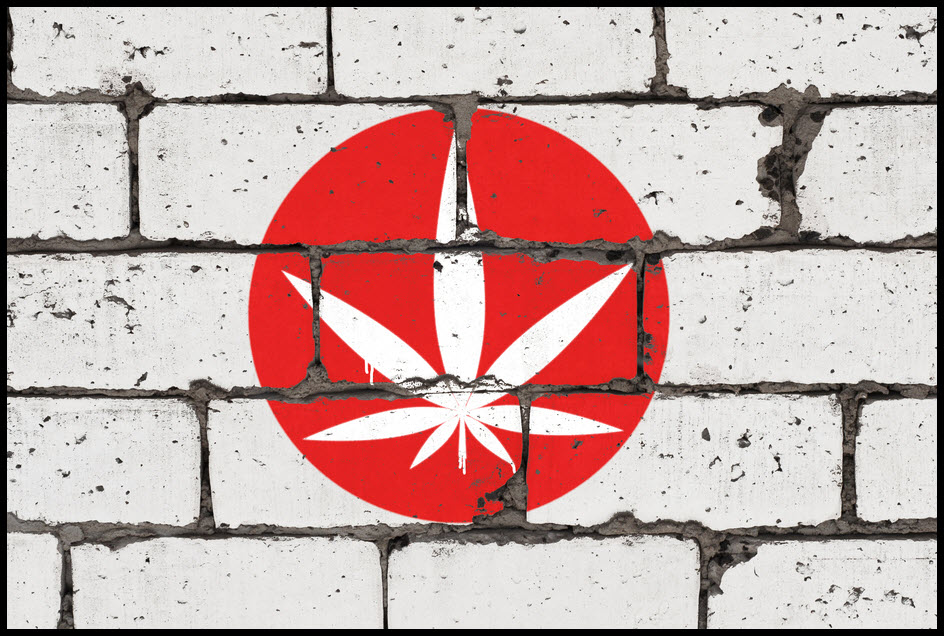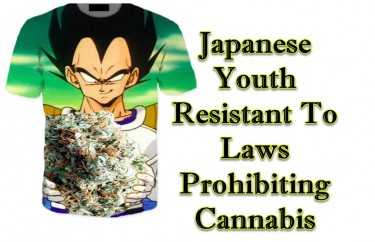
Japan’s marijuana legalization movement is dead
Who would have thought that Japan, with all of its amazing innovations, would maintain an archaic attitude towards cannabis?
All of the cannabis reforms introduced by the country’s government and the Ministry of Health have been downright contradicting and even backward. For this reason, the country has had very great difficulties in implementing the reforms mentioned.
This is sad because until the 1940s hashish was an integral part of cannabis culture.
Cannabis use in Japan
After the Second World War, the United States of America occupied Japan. It was in 1948, in their few months in the country, they were able to influence the Japanese government to pass new laws and guidelines. One of these guidelines was the ban on cannabis, especially products with high THC content. Since then, the government has not only tightened the law, but cruelly imposed it on its citizens at home and abroad.
Before the point when cannabis became illegal in Japan, this drug, according to history, played an important role in Japanese culture. People were allowed to grow and consume the drug without restrictions. It is important to note that during any of these events, the country never had a bout of substance abuse. One wonders why they banned the drug in the first place.
It was reportedly the Emperor of Japan who stepped in to save the hemp industry in the mid-19th century. His courageous step secured the continued cultivation of hemp plants in the country. He also introduced the concept of hemp permits to allow the government to have a list of growers.
This was enough to barely keep the industry going as the number of hemp growers has declined over the years.
The government raised the cost of hemp permits and farmers couldn’t afford them.
Currently, the total number of hemp farmers in Japan is less than a thousand, compared to 35,000 before the current law went into effect.
As in all other countries where substances are banned, the Japanese still use the drug occasionally. There have also been advocates calling on the government to reconsider its stance on cannabis.
All over the world, countries are trying to legalize cannabis, countries like Canada and South Africa already have laws that support the use of cannabis for medicinal purposes and even for recreational use.
Cannabis laws in Japan
The 1948 law prohibits the possession and cultivation of hashish. Japan’s efficient system enables this law to be enforced without being biased. In 1980, for example, an ex-Beatle named Paul McCartney was caught visiting the country with less than 10 ounces of cannabis. The ruling government denied the celebrity a visit to Japan for more than 10 years.
Since the law was passed, national companies have terminated sponsorship deals with athletes and other celebrities caught holding or using cannabis in and out of the country.
Japan has one of the toughest sentences for cannabis offenders. The penalties range from imprisonment of at least five years to the payment of exorbitant fines of around one to five million yen, depending on the severity of the case and the judge appointed.
A closer look at the law reveals that there are no criminal penalties listed for offenders caught using the drug. In a free country, this gray area could be used to bring about a change in the industry. Instead, the Japanese government got the upper hand, confident enough to warn Japanese people living in other countries not to use recreational cannabis.
The government doesn’t care if its nationals live in cannabis-legalized countries, it just sticks to its stance that all nationals – at home and abroad – should not be caught in possession of hashish.
CBD usage in Japan.
Hemp plants are rich in CBD and very low in THC. Japan is primarily against the use of high-THC marijuana plants. As recently as June 2021, the Ministry of Health announced that high-THC marijuana plants would remain illegal. The ministry panel said there were growing concerns about the usage rate among young citizens.
A major reason the hemp industry hasn’t been decimated is because hemp is traditionally used as an aesthetic in the country’s cultural shrines. Unique Shimenawa ropes are used in Shinto shrines, these ropes are made from hemp plants.
In 2016, CBD products were approved for use by adult Japanese nationals. All cannabis-derived products with medicinal benefits are also approved for the treatment of diseases. The new guidelines allow these drugs to be imported into the country.
What the future holds for Japan’s cannabis industry
The future of the industry is currently uncertain. The people who can bring about change in this industry are stigmatized in society. Ironically, around 10% of the population use cannabis but are afraid to speak up for fear of being punished.
Although the country allows the use of CBD, it focuses on penalizing nationals who consume the drug without authorization for non-medical reasons. The number of cannabis offenders increases significantly each year, with young adults under the age of 30 making up the higher percentage of all cases registered with the police.
Companies have innovated in infusing CBD into products. There are coffee shops that mix CBD plants and body cream manufacturers that also use the drug as an ingredient. More of these practices may emerge in the coming years.
Nobody knows what to expect in terms of cannabis legalization, but Japan’s Ministry of Health, Labor and Welfare has promised to release a report before the end of September. This report will list all of the guidelines that are used to regulate the hemp industry. The ministry announced that farmers are allowed to sell their hemp in and out of their states.
Bottom line
Japan is already known for its advanced technology and design. Imagine how powerful it can be when it lets go of its tough drug policies.
JAPANESE MARIJUANA MOVEMENTS, READ MORE …

JAPANESE YOUTH ARE FIGHTING FOR CANNABIS REFORM IN JAPAN!
OR..

JAPAN WANTS CANNABIS REFORM, BUT IT WILL BE HARD!

Post a comment: